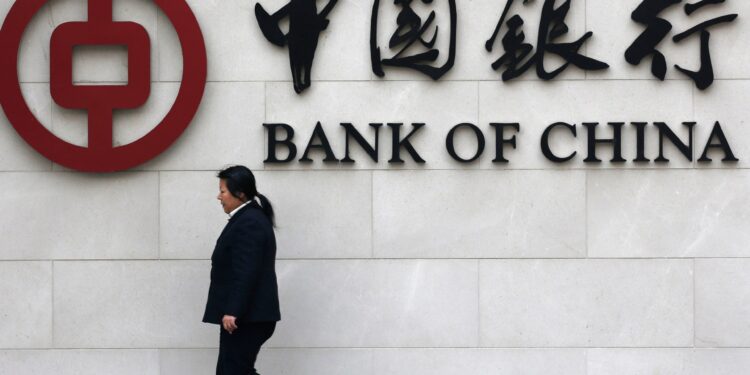Bloomberg reported, citing unnamed informed sources, that Chinese state-owned banks began tightening restrictions on financing Russian clients, after the United States’ decision to impose secondary sanctions on foreign financial companies that support Moscow’s activities in the Ukrainian conflict.
According to Bloomberg, at least two major banks have begun a comprehensive review of their Russian business operations in recent weeks, with a particular focus on cross-border transactions.
The sources revealed that banks are taking decisive measures by cutting ties with clients listed under sanctions and ceasing to provide any financial services to the Russian military industry, regardless of the currency or location of the transaction.
To ensure compliance, lenders are strengthening customer due diligence, conducting comprehensive checks on business registrations, authorized beneficiaries, and final controllers with ties to Russia.
It is expected that the scope of the review will be extended to include non-Russian customers involved in business in Russia or who transport important items to Russia via intermediary countries, according to the same source.
Bloomberg indicates that this development is a new episode in the escalation of restrictions imposed by Chinese government banks since early 2022, following the Russian-Ukrainian war, which led to the imposition of widespread sanctions, including those imposed by the United States.
Last month, the US Treasury Department announced the use of secondary sanctions against banks that facilitate Russia’s purchase of equipment for its army, which led to expanded financial pressure on Russian President Vladimir Putin..
According to Bloomberg, despite China’s general opposition to US sanctions, this step highlights the extent of Chinese banks’ compliance with these sanctions. China has refrained from providing significant military aid to Russia, even as it continues to provide diplomatic support to Putin and expand trade in areas not subject to sanctions.
During the ongoing conflict, China’s exports to Russia saw a significant increase, making it the largest importer of oil from Russia.
The sanctions have severely restricted the Russian Central Bank’s ability to access international reserves, leaving it with only gold and the yuan. The share of yuan-based settlements rose to 27% as of last September, up from 15% at the end of 2021.
In the financial field, Russian banks turned to the Chinese company UnionPay in 2022 after suspending Visa and MasterCard operations there.
The four largest state banks in China have a long track record of complying with previous US sanctions against countries such as Iran and North Korea to maintain access to the US dollar clearing system.
The US decision to impose secondary sanctions has sparked controversy because of its potentially unpredictable impact and the risk of collateral consequences associated with it. In response, banks operating in a number of countries may withdraw from entire sectors, even those not directly subject to sanctions, out of an abundance of caution to avoid violating the rules, she tells Bloomberg.
This latest round of restrictions requires banks to adhere to strict standards, especially when they are unsure which sectors could be affected by their Russia-related business transactions.



